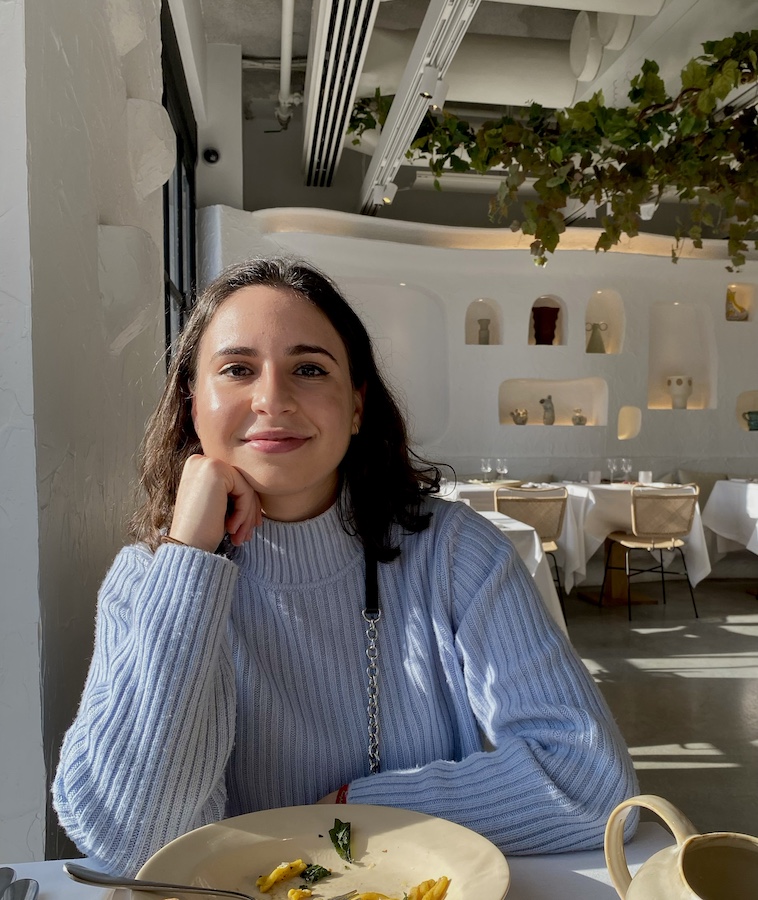AMSTERDAM: When Zineb Belrhiti was growing up, she tells Arab News, “I was much more into Western culture: I watched a lot of American movies and I listened to American and British music. I didn’t want to listen to the big Arabic artists my parents were listening to.”
The Moroccan-born artist’s experience is typical of her peers growing up in the cultural jumble of Dubai. “I only lived in Morocco until I was three. I grew up in the UAE. I went to a French school, so I was surrounded by people from different nationalities — and in general the UAE is very multicultural,” she says.
But as she entered her late teens, Belrhiti began to feel somewhat unrooted — another experience that many in the UAE will be able to relate to. “I realized that I felt pretty far from my own culture,” she says. “I didn’t really feel Moroccan, but I’m not French either. I speak French and I’ve grown up with French culture, but I can’t say I’m French, because I’m not. At the same time, I can’t say I’m from the UAE because, even though I’ve spent my life here, I don’t have a UAE passport.
“I don’t think it’s only me, I think it’s something a lot of people can relate to,” she continues. “And this disconnect from every culture made me want to get closer to my Moroccan roots and to Arab culture in general.”

Caption
Her Arabic wasn’t particularly strong, she explains, so she turned to some of those Arabic musicians her parents liked, whom she had previously shunned, as a ‘way in.’ “I started really appreciating Abdel Halim (Hafez), Umm Kulthum, Fayrouz…” And she began to feel a stronger connection to her Arabic roots.
In her audiovisual exhibition “Soundtrack to Puzzled Identities,” hosted online last month by P21 Gallery (P21 is a London-based charity “established to promote contemporary Middle Eastern and Arab art and culture”), Belrhiti brought together a number of her cultural influences to create “a celebration” of the tensions and confusion — and creative inspiration — that those ‘third-culture’ feelings can raise.
Her pop-art illustrations place Arabic musicians onto the background of Western record covers (Umm Kulthum on Adele’s “21,” or Fayrouz on Lana Del Rey’s “Born to Die,” or Abdel Halim on Elvis Presley’s eponymous debut album), and each is accompanied by a short audio mashup (created by Belrhiti on GarageBand) of a track from each of the relevant artists.
“The whole exhibition is focused on nostalgia and these are all artists that I’ve listened to at some point in my life who represented something,” she explains. “Lana Del Rey, I was listening to her a lot when I was around 14, and that was really the start of me developing my own taste in music. Then I discovered indie music, and I guess from there my taste really evolved. Adele, she’s iconic as well, and a lot of people would recognize that album. Elvis Presley too — he’s a huge artist. So I wanted the album (cover) to be recognizable, but also for the Western artists to be big, just to show how important these Arab artists are as well.”
Aside from the already mentioned Arab icons (including Warda on Dua Lipa’s “Future Nostalgia”) Belrhiti also included two contemporary Arab alternative artists — Lebanese indie trailblazers Mashrou’ Leila (on Queen’s “Hot Space”) and Moroccan trap artist Issam (on David Bowie’s “Aladdin Sane”).
“When I discovered Mashrou’ Leila, I was just really happy to see that there was this indie Arab band that’s doing so well — even in (the West). It’s really interesting to see that they’re singing in Arabic but getting recognition from the whole world. (That applies to) Issam as well. He sings in Moroccan — which is even harder to understand, even for Arab speakers — so it’s really nice to see that he’s getting listens from Europe and the US,” she says. “These people are mixing up cultures in their own way and getting recognition for it.”
Which is, of course, exactly what Belrhiti is doing with “Soundtracks to Puzzled Identities,” which has received encouraging feedback on social media. Expect this to be an ongoing project.
“It’s to show that even if you don’t really feel at home anywhere, you still have so many cultures to be inspired by and so many connections with all these cultures you’ve been exposed to,” she says of her creation. “Rather than something to feel confused or sad about, being influenced by different cultures is a really good thing.”












